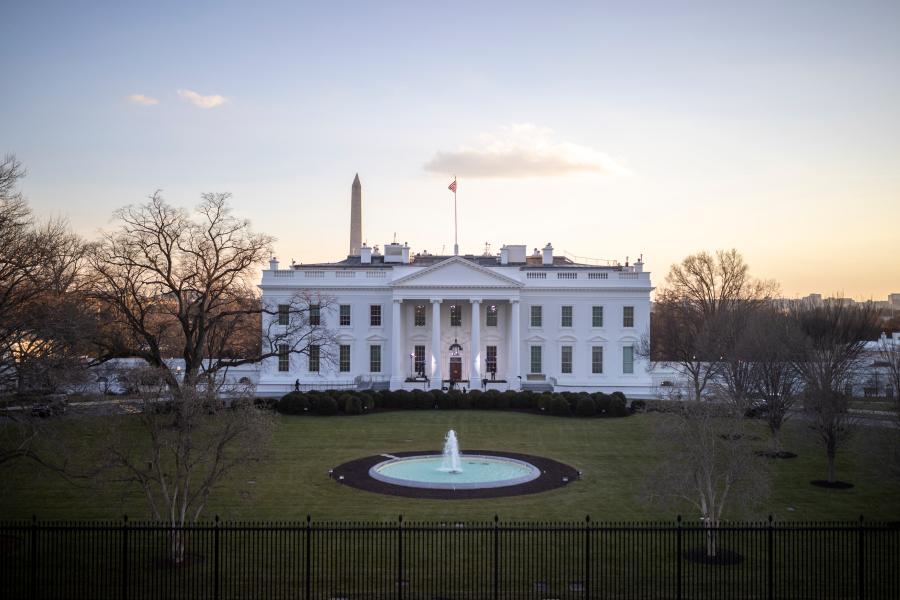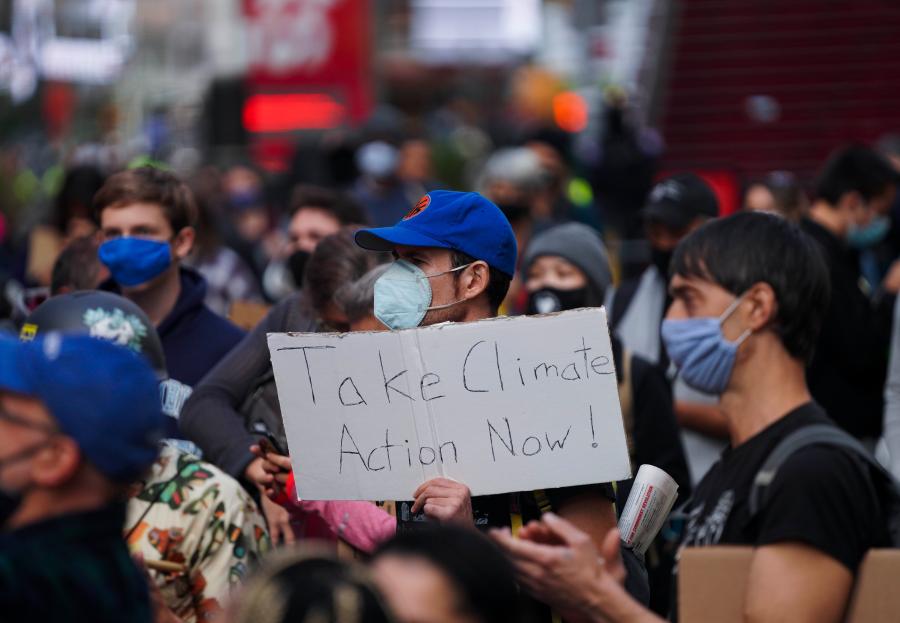Commentary: America's four deficits in climate action

Photo taken on Jan. 20, 2021 shows the White House in Washington, D.C., the United States. (Photo by Ting Shen/Xinhua)
As the biggest carbon polluter in human history and the largest economy and sole superpower in today's world, the United States indeed bears a special responsibility in the global climate battle.
BEIJING, April 24 (Xinhua) -- After being a foot-dragger and outright deserter for years, the United States is returning to the global climate battle with much fanfare, and making no secret of its intention to be the commander-in-chief.
The world welcomes the renewed climate commitment of the largest cumulative emitter of greenhouse gases in history, and looks forward to it playing a constructive role. But the United States has at least four deficits to plug before it can convince others of its seriousness.
The first one is a consistency deficit.
Throughout recent history, flip-flopping has been the hallmark of the U.S. federal climate policy. President Bill Clinton signed the Kyoto Protocol; his successor, George W. Bush, backtracked from it. President Barack Obama brought America to the Paris Agreement; his successor, Donald Trump, withdrew from it.
Now President Joe Biden has recommitted his country to the cause, but no one knows whether the latest commitment will outlast the next election.

Photo taken on Sept. 9, 2020 shows a view of San Francisco, the United States, overcast with wildfire smoke from nearby areas. (Xinhua/Wu Xiaoling)
The second one is an ambition deficit.
The United States has released more planet-warming greenhouse gases into the atmosphere than any other country, but successive U.S. governments have hardly lived up to their country's climate responsibility.
The Biden administration appears serious, but its emissions-cutting ambition -- a 50-52 percent cut from 2005 levels by 2030 -- lags behind that of Britain. Moreover, if the United States has a determination that matches China's, it should cut its emissions, which peaked in 2007, to zero in 2037, instead of 2050.
The third one is an assistance deficit.
As human-caused global warming results from cumulative emissions, today's developed countries, particularly the United States, should make sincere and substantive efforts to help their developing peers, including financial support and technology transfers, rather than shirk their historical responsibilities and international obligations.
However, over six years after Washington promised to contribute 3 billion U.S. dollars to the Green Climate Fund, a financial mechanism established to assist developing countries in countering climate change, only 1 billion dollars have been delivered.

People take part in a climate change protest in Times Square in New York, the United States, on Sept. 20, 2020. (Xinhua/Wang Ying)
Last but not least, there is a morality deficit.
It may seem silly to many to talk about Washington's morality, but climate change, an existential threat to all, should be enough to summon up the better angels in America's ethos and commit the country to wholehearted action.
Sadly, it appears not. Even on this subject, U.S. politicians still have an ulterior motive: to retain U.S. hegemony, or what they call "climate leadership." They view climate change, a planetary crisis that demands all-hands-on-deck cooperation, through the lens of geopolitical competition. That is a big time bomb buried in the global climate response.
As the biggest carbon polluter in human history and the largest economy and sole superpower in today's world, the United States indeed bears a special responsibility in the global climate battle.
It is just that, in a fight that concerns the future of all humankind, it needs much more than fanfare and empty promises for a repeated deserter to ever be trusted again with a leading position.
Photos
Related Stories
- NYS COVID-19 hospitalizations down to 3,294, positivity rate 1.79 pct: governor
- Chicago exhibition on Chinese cuisine history highlights struggle, success of Chinese immigrants
- U.S. Oregon reports almost 2,500 COVID-19 related deaths
- Biden recognizes atrocities against Armenians as "genocide"
- Floyd case historic for racial justice: media
Copyright © 2021 People's Daily Online. All Rights Reserved.










